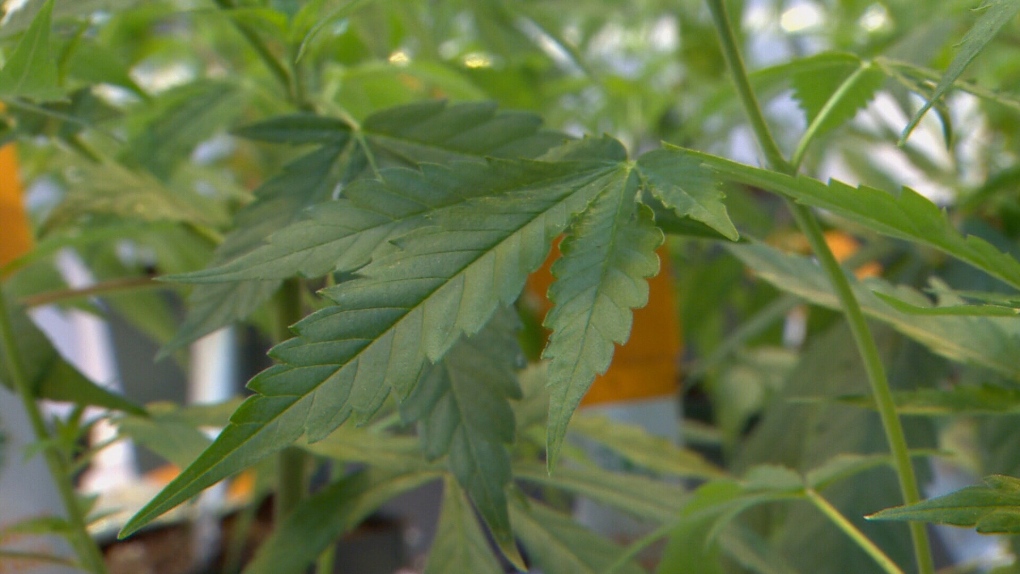A Manitoba cannabis company announced it is temporarily laying off about 40 employees in a push to bolster its struggling cultivation and wholesale outfits.
Delta 9 said in a news release Monday the move is part of a plan to streamline cultivation operations and capacity at its Winnipeg facilities, as well as reduce company and investor costs.
The company said cultivation capacity at its Winnipeg facilities will be cut by about 40 per cent, which includes the temporary layoffs of about 40 staff.
“I would like to thank the employees affected by this decision for their invaluable contributions to Delta 9’s success and growth,” said Delta 9 CEO John Arbuthnot in the release. “This was a very difficult decision, but it is a key component of executing on our strategic plan and one we believe best positions Delta 9 for profitable growth”
Delta 9 COO Mark Jonker said the company’s stores have been profitable and have had positive cash flows over the past several years, but its cultivation and wholesale cannabis operations struggled to turn a profit because of continued price and margin compression in the Canadian cannabis market.
“Our decision is designed to significantly reduce costs and to chart a near-term path to becoming positive cash flow from operation,” he said in the news release.
According to the news release, the plan won’t impact wholesale revenues or shipments to its wholesale and retail customers.
The company added its retail operations won’t be impacted by the changes.
CFO Jim Lawson said the board of directors and executives are also reducing their compensation. He said the cost-saving measures are expected to reduce operating costs by $3 million to $4 million in 2023.
SPECIALIZATION EXPECTED IN CANNABISY INDUSTRY
Wenlong Yuan, a professor of entrepreneurship and business innovation at the University of Manitoba says downsizing operations is typical when a business is facing financial trouble.
He expects the Canadian cannabis industry will eventually move into specializations.
“Typically in a later stage of the evolvement of an industry, we start to see the kind of attention on the very small niche market,” Yuan said. “We see lots of separation in the different parts in the value chain.”
Delta 9’s specialization has changed since its start as a medical marijuana cultivator. Now less than one per cent of its revenue comes from medical cannabis – prompting more change.
Arbuthnot said in an interview with CTV News Winnipeg Delta 9 will also be closing its medical cannabis clinic.
“Patients are finding it easier to access their medical cannabis from the adult use market then by going through those conventional medical channels,” he said.
A decrease in medical cannabis has been noticed by Health Canada.
In Manitoba – the number of medical cannabis clients registered by Health Canada dropped from more than 15,000 in March of 2019 to just over 8,000 in March 2022.
“The number of individuals registered with Health Canada for personal and designated cultivation of cannabis for their own medical purposes decreased 14 per cent from 41,760 in December 2021 to 35,754 in March 2022,” Health Canada said.
As for why – Health Canada says it is between a patient and their doctor.
Arbuthnot says despite the changes, it’s seeing big growth in retail and had a record year in 2022.
“Retail operations have been quite profitable, almost since legalization,” he said. “So retail (is) a real point of strength for us.”
That strength in retail growth has been noted by the province.
“The retail sale of cannabis is an emerging and very competitive industry, and the retail environment will continue to stabilize as the industry matures and customers establish their retail practices,” Finance Minister Cameron Friesen said in a statement to CTV News Winnipeg.
Friesen said they have introduced legislation to repeal the six per cent social responsibility fee. He says the cannabis industry’s maturing and stabilization of provincial regulatory costs lead to this decision. If passed, the fee on sales will end as of January 1 of this year.
Meantime, Manitoba Liquor & Lotteries said in a statement it “supports the growth of a strong, legal cannabis market and works collaboratively with our licensed cannabis retail partners and Health Canada licensed producers to achieve this.”
The province and Manitoba Liquor and Lotteries both say it is watching the industry and will work to identify what is – and what isn’t working in the industry.
H/T: winnipeg.ctvnews.ca



